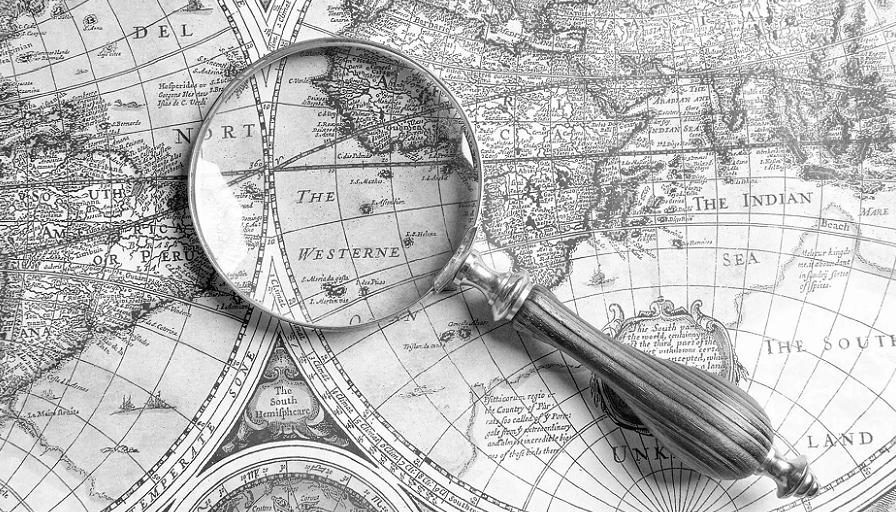
Have you ever wondered about the story behind your last name? It’s more than just a random collection of letters; it’s a window into history and a reflection of cultural journeys across time and space. Surnames carry a plethora of information about where we come from and who we are. Here we look at how last names have traveled around the globe and what they reveal about our shared human experience.
Contents
The Birth of Surnames: A Necessity Arose
In early human history, surnames weren’t as crucial as they are today. Communities were smaller, and people often lived in villages where everyone knew each other’s first name. As populations grew and societies became more complex, it started becoming difficult to distinguish individuals with the same first names. This need gave birth to the concept of surnames.
In Europe, surnames began to appear in earnest around the time of the Middle Ages. They developed as a means to distinguish between people with the same given name, which was a practical necessity in large communities. These names often described a person’s occupation, like Smith, Tailor, or Baker, or they could be associated with geographic locations, such as Hill or Woods.
Types of Surnames
Surnames can generally be categorized into four main types: patronymic (or matronymic), occupational, descriptive, and geographic. Each of these offers a peek into the ancestry and lifestyle of our ancestors.
- Patronymic/Matronymic: These surnames are derived from the first name of a parent. For example, the surname Johnson means “son of John.” In some cultures, similar mother-based surnames exist.
- Occupational: These are based on the job a person did, like Miller or Carpenter, providing insight into the economic activities of the past.
- Descriptive: These surnames describe a characteristic of a person, such as Brown (perhaps referring to hair color) or Armstrong (indicating strength).
- Geographic: These relate to a person’s home or land, like Londoner or Rivers, indicating where someone originated from or lived.
Surnames and Migration: Names on the Move
As people migrated and borders changed, surnames traveled across the globe. Immigration transformed how surnames were adapted, spelled, and understood. When families moved to different countries, surnames often evolved to fit into the new culture or language. For instance, the German “Schmidt” might have become “Smith” in English-speaking nations.
The standardization of surnames in census records, legal documents, and immigration papers drastically impacted their original spellings. New environments and languages often meant that surnames got adapted for ease of pronunciation and comprehension in the new homeland.
The Genealogy of Surnames: Tracing Your Roots
Genealogy, the study of family ancestry, has become a popular pursuit. With the rise of online databases and DNA testing, tracing one’s lineage has become accessible and engaging. Surnames are a critical part of genealogical research as they provide clues about family history and migration patterns.
By examining surnames, genealogists can connect with distant relatives, uncover stories about family heritage, and gain insights into cultural shifts over centuries. This deep dive into family names not only builds a family tree but also unravels the socio-economic conditions and cultural influences that shaped our ancestors’ lives.
Surnames Across Cultures: Unique Features and Traditions
Surnames around the world display a remarkable diversity of practices and traditions. In Iceland, individuals use patronymic or matronymic surnames so people are often referenced as “someone else’s son or daughter.” Spanish-speaking cultures might have two last names, one from each parent, showcasing family lines from both sides.
Some Jewish surnames, on the other hand, are derived from the sacred texts or unique historical events faced by the community. In contrast, many East Asians have surnames that were traditionally created to establish family clans.
Impact of Colonization on Surnames
Colonization played a significant role in how surnames evolved. Colonizing nations often imposed their cultural norms on the lands they conquered, which included their naming conventions. Indigenous peoples in many parts of the world had to adopt new names to comply with colonial systems. This change frequently led to the loss of original names and the meanings tied to them.
The Modern Era: Digital Identity and Surnames
Today, the digital world requires us to use surnames more than ever, from signing up for social media accounts to online banking. Our last names contribute to our digital identity, adding layers to personal branding and virtual presence. They’re not just markers of family heritage, but part of how individuals interact and present themselves to the world online.
With global interconnectedness, people are reflecting on their heritage, leading to revivals of forgotten family names or the creation of new ones to reflect personal or family identity accurately. It’s an exciting era where people have the freedom to shape their identities in ways that honor tradition yet embrace modernity.
Whether your surname has traveled through continents or has stayed close to its place of origin, it is imbued with stories waiting to be discovered. The journey of surnames is not merely about letters and sounds; it is a portal to the past that links us to our ancestors, telling us who they were, where they came from, and how they contributed to the rich tapestry of human history.

